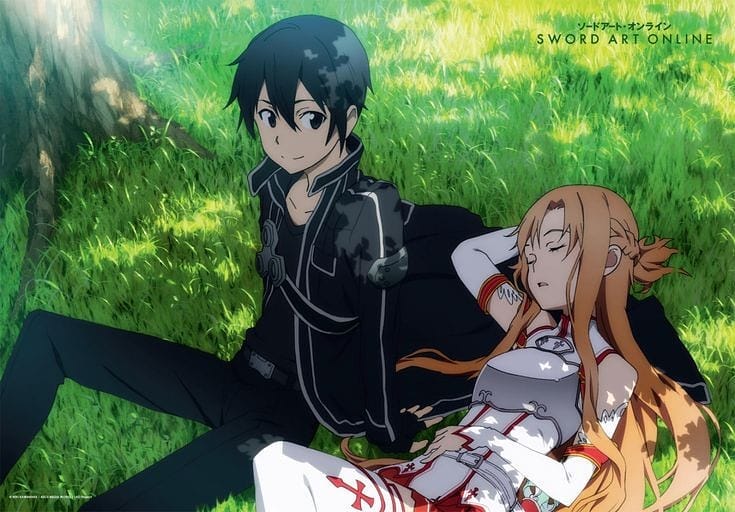If you have an affinity for PC games and anime, particularly MMORPGs, then Sword Art Online is an indispensable watch. In the realm of critics, SAO stood out as one of the premier animes in 2013, even earning itself an award. However, unlike its counterparts, SAO did not originate from comics; rather, it sprang forth from a short story published in 2012, becoming one of the year’s bestselling works of its kind. The narrative delves into an exploration of human relationships with virtual worlds and the psychological aspects therein. Should the technology depicted in the anime come to fruition, the consequences portrayed in the storyline could potentially manifest as a harrowing reality, perhaps even more dire than imagined.
To begin, it is worth noting that RPG stands for role-playing game. When MMO precedes this term, it signifies that the game is an online experience, allowing for interactive play with other individuals hailing from diverse corners of the globe. MMORPGs currently reign as the most popular genre of games in our contemporary era. World of Warcraft, at one point in time, held the distinction of being among the most widely played games, yet its impact, unfortunately, proved detrimental to numerous lives due to the choices made within it. Presently, the majority of game designs revolve around fostering communal experiences.

Now let us examine the storyline of Sword Art Online. Its inaugural online version was launched on November 6, 2022, attracting a multitude of players within its first day. However, in contrast to our technological capabilities, SAO can only be accessed through a device known as the Nerve Gear, which must be worn on the head. Within the SAO universe, the Nerve Gear represents a cutting-edge technology for engaging with MMORPGs, comparable in principle to virtual reality glasses, albeit our own technology in this regard remains considerably underdeveloped.
Thousands of players converged upon the square, eager to hear Kayaba’s opening address, wherein he would provide instructions on how to navigate the game. Instead, they were met with the jarring revelation that Kayaba had intentionally removed the exit option from their system. This revelation struck them with a profound blow. It was at that moment that they collectively realized there was no escape; each player had been ensnared, or more aptly put, “kidnapped” by the game itself. The sole means of departure lay at the summit of the map, specifically on the 100th level. Only by defeating the boss at this stage could one discover the path to liberation from the game. Alas, the most pressing predicament lies in the fact that in-game fatalities correspond to real-life deaths. Removing the Nerve Gear also results in the demise of the player.
Henceforth, their collective endeavor revolves around advancing to stage 100 and vanquishing the ultimate boss, as they find themselves hopelessly entrapped within the confines of the game. Consequently, a novel existence begins to take root within this virtual realm, its ramifications extending to the real world. Amidst the countless fatalities caused by the Nerve Gear, governments mobilize an operation to apprehend Kayaba, thereby escalating the predicament to include not only the players but also their families, burdened with their own set of challenges.
Our narrative unfolds by following the path of a young protagonist named Kirito, who is introduced to us from the very outset of the show. We embark upon his arduous journey towards reaching level 100 and forging connections with fellow players. Naturally, the storyline commences with Kayaba’s pivotal address. Consequently, these individuals, once perhaps timid, passive, and fragile in their real lives, undergo a transformative metamorphosis, assuming the roles of warriors, leaders, villains, or mercenaries.
The boundless potential of the virtual world bestows upon them a newfound sense of individuality that had hitherto eluded them, an essence that may have remained forever dormant. Admittedly, if they could harness their collective strength and unite their efforts, scaling the summit would be a relatively facile feat. However, even within the confines of a virtual reality game, their humanity endures, and their individual passions persist. The powers bestowed upon them by the game’s mechanics are often wielded recklessly, leading to dire consequences. Departing from the game and resolving their problems collectively should, in theory, be simple. Nevertheless, a fundamental question arises: Does everyone desire to leave? The unequivocal answer, of course, is no. And thus, a significant rift emerges amongst them, engendering a colossal schism.

SAO artfully scrutinizes the dichotomy between human nature and the realm of virtual reality. Life within SAO serves as a reflection of our contemporary experience with virtual realms. Individuals who may appear weak and marginalized in the offline world are metamorphosed into heroes, often losing their moral compass in the process. Over time, many of them lose sight of the true purpose behind their coexistence. Naturally, exceptions to this trend exist. The bonds of friendship, acts of heroism, and the liberation granted by the game itself imbue their lives with a fantastical allure akin to a motion picture. However, this enchantment does not pervade their existence without exception. SAO, at times, plunges into the depths of abominable transgressions, teetering on the precipice between life and death, as characters resort to heinous acts in order to cling to their fragile existence. It is precisely these morally complex dynamics that render the show compelling and worthy of our attention.
If one possesses an affinity for MMORPG games, it is highly likely that Sword Art Online will captivate their interest immensely. Notably, SAO comprises three seasons and a plethora of movies, offering a substantial trove of content to be explored.

Cast & Crew
creators: A-1 Pictures, ASCII Mediaworks, Aniplex
starring: Yoshitsugu Matsuoka, Haruka Tomatsu, Bryce Papenbrook, Cherami Leigh
JAPAN | 2012 | 100 EPISODES |
